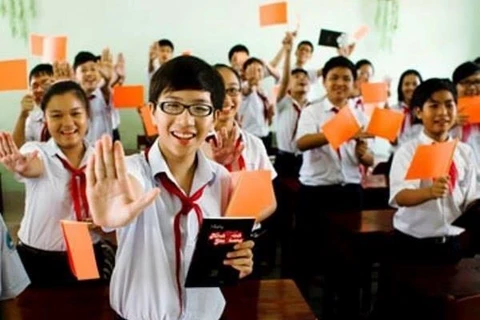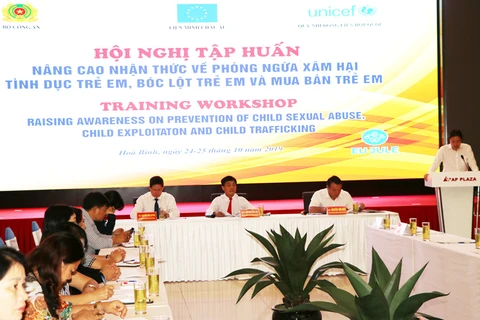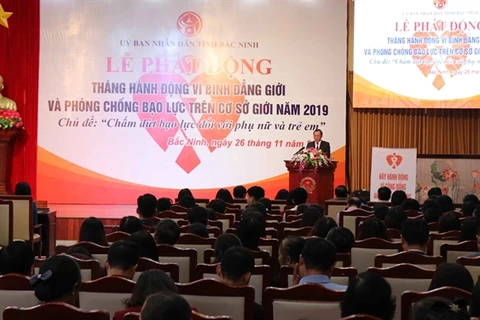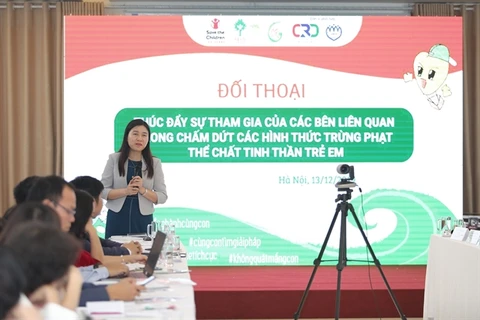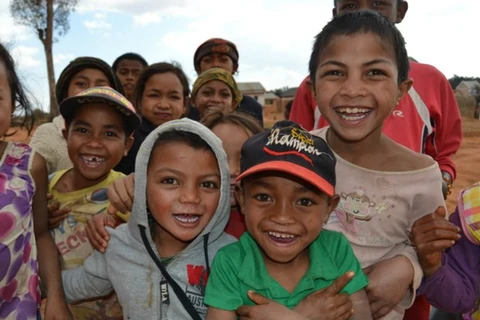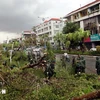Hanoi (VNA) - The Information Security Department under the Ministry of Information and Communications and the Ministry of Labour, Invalids and Social Affairs’ Department of Child Affairs signed a cooperation plan regarding child protection on the internet in Hanoi on March 5.
This is the first time a state management agency in charge of information security in cyberspace and a state management agency in charge of protecting children's rights have worked together to implement measures for child protection.
In addition to contributions to the socio-economic development of Vietnam, the development of the internet in recent years has posed many urgent social issues, including the protection of children in cyberspace.
The coordination plan aims to acknowledge and implement agreed commitments between the two sides on the basis of optimizing their strengths, and enhancing their coordination to direct and effectively implement child protection solutions.
Addressing the signing ceremony, head of the Department of Child Affairs Dang Hoa Nam stated that the combination of advanced technology and knowledge and experience in child protection will create a new step forward for the protection of children, minimising the negative impacts from the internet.
Going forward, the two agencies will focus on surveying and assessing the impact of this virtual environment to develop a set of criteria for protecting children online.
The establishment of a child protection network will connect agencies, organisations and businesses to work together for children, forming a good and comprehensive process to prevent, detect, intervene and handle child abuse and exploitation online.
Through this network, children will easily speak out, access support services, and receive protection when at risk of being abused online. This is similar to the support process that children at risk or abused receive in real life, Nam said.
The two agencies will also work together to make the internet safer for children through building tools to educate children on relevant issues, as well as serving as a vehicle for them to learn, create and access information.
The two sides will coordinate to improve internet-safety knowledge and skills for children to protect themselves, helping them to promptly report acts of abuse.
A national hotline for child protection at 111, as well as online educational materials to improve skills for children have been set up, developed and posted online.
In addition, the two sides will develop research reports, conduct an impact assessment of the environment online, and form a database classified by age.
Ensuring that children are able to interact positively and safely on the internet is not only the task of a specific ministry or sector, but a duty for the whole community.
It is therefore essential to develop and pilot ecosystems to promote organisations and businesses to take part in building healthy content for children in cyberspace.
Nam said the coordination plan demonstrates the high responsibility of management agencies, especially when calling on domestic and foreign businesses and organisations to be ready to accompany and protect children on the internet in accordance with legal regulations on children's rights and cybersecurity, in the context of increasingly sophisticated child abuses in cyberspace.
Local laws such as the 2016 Children’s Law, the 2016 Access to Information Law, the 2018 Information Security Law, and the 2018 Cyber Security Law all have contents on child protection.
However, there are still too few mechanisms to safeguard children in cyberspace, as they may easily be subjected to cyberbullying, grooming, fraud, attacks, and even sexual abuse.
Experts have proposed many measures to protect children on the internet, especially those related to legal framework; the use of technology to support children; an increase in society’s capacity for internet use, and intensifying international cooperation to resolve child-related issues./.

